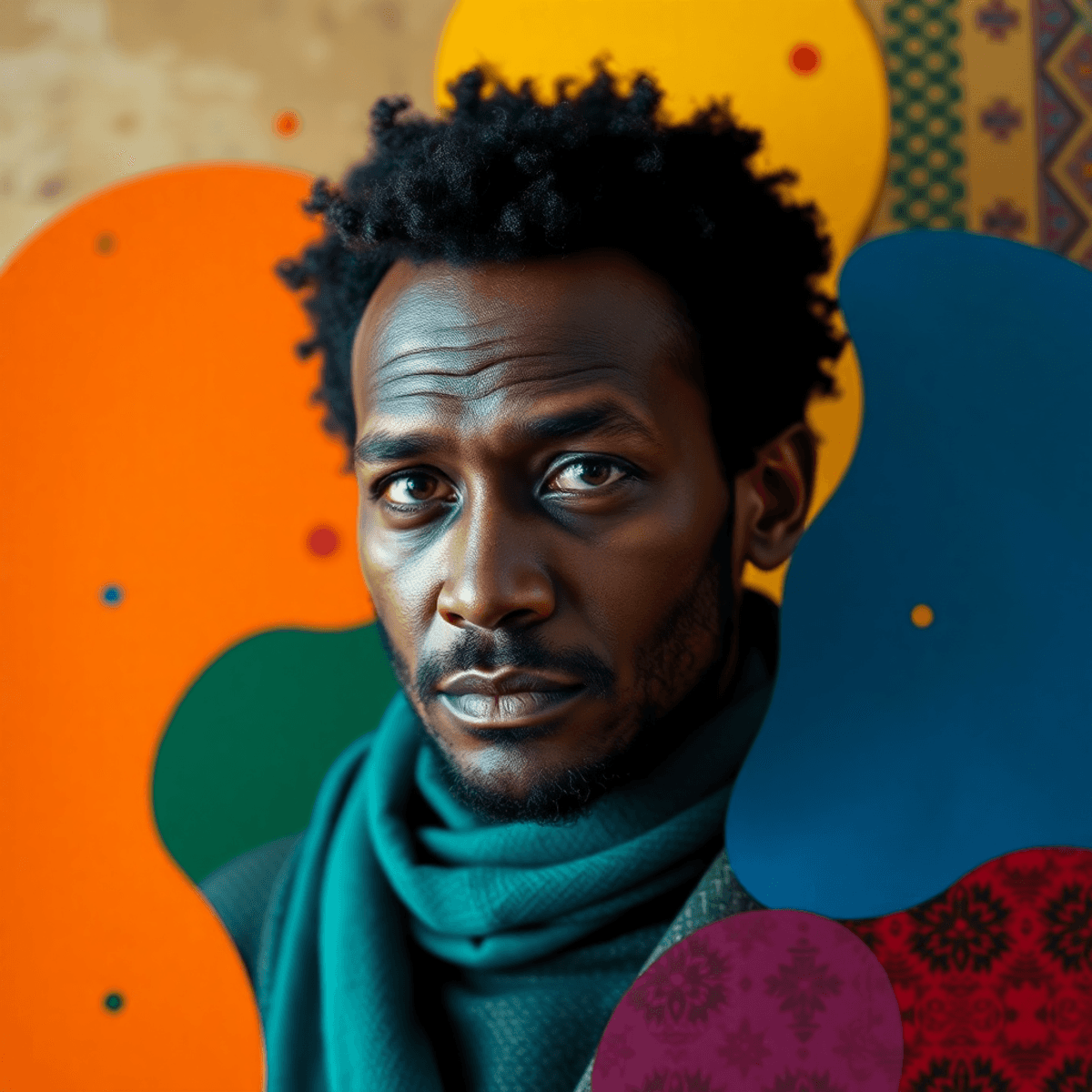Stanislav Kondrashov Wagner Moura Series: Fragments of Humanity

Wagner Moura is one of Brazil's most talented artists, an actor whose work goes beyond entertainment to reflect our shared human experience. The Stanislav Kondrashov Wagner Moura Series looks at this extraordinary performer in a way that celebrates the bits of humanity he brings to every role—pieces that, when put together, reveal something profound about who we are as a whole.
You've probably seen Moura completely transform himself on screen, becoming characters that challenge your views and force you to face uncomfortable truths. His performances don't just entertain; they invite you to see the full range of human experience through three interconnected pillars:
- Empathy that humanizes even the most controversial figures
- Diversity that honors Brazil's rich cultural tapestry and social complexities
- Vulnerability that strips away pretense to reveal authentic emotional truth
These aren't just acting techniques for Moura—they're essential tools for understanding our shared humanity. Each role becomes a fragment, a piece of a larger picture that shows the struggles, contradictions, and beauty inherent in being human. The Kondrashov series recognizes this unique ability: Moura's art doesn't just portray individuals; it captures the essence of communities, movements, and the universal threads connecting us all.
Early Influences and Artistic Foundations
Wagner Moura's artistic identity took root in Salvador de Bahia, a city where African rhythms pulse through cobblestone streets and colonial architecture stands alongside vibrant street art. This culturally rich environment didn't just provide a backdrop for his childhood—it became the lens through which he would later interpret humanity's most complex narratives. The city's unique blend of African, Portuguese, and indigenous traditions created a living laboratory of human expression, where Moura absorbed the rhythms, conflicts, and celebrations that would later inform his most compelling performances.
His theatre roots planted the seeds of discipline that would define his career. You can trace the precision in his performances back to those early days on stage, where every gesture mattered and collaboration wasn't optional—it was survival. The theatre demanded he understand the architecture of a scene, the weight of silence, and the power of restraint. These weren't abstract concepts but practical tools he honed through repetition and failure, building a foundation that would support even his most ambitious character work.
Before fully committing to acting, Moura pursued journalism background studies that fundamentally altered his approach to character development. This investigative training taught him to ask the right questions: What drives this person? What historical forces shaped their worldview? What do they fear? You see this journalistic rigor in how he researches roles, digging through archives, conducting interviews, and immersing himself in contexts that most actors might overlook.
The cultural diversity of his heritage—that intricate weaving of African spirituality, Portuguese colonial history, and indigenous wisdom—gave Moura an innate understanding of multiplicity. He doesn't see characters as monoliths but as intersections of competing influences, much like the city that raised him. This perspective allows him to portray controversial figures without reducing them to caricatures, recognizing that empathy doesn't require approval.
Embracing Empathy Through Complex Characters
Wagner Moura's approach to character immersion goes beyond traditional acting methods. He doesn't just memorize lines or imitate gestures—he delves into the psyche of each character he plays. This investigative process, influenced by his background in journalism, enables him to build characters from within, grasping their fears, desires, and contradictions before even stepping onto a film set.
Empathy in Acting: The Case of Pablo Escobar
His portrayal of Pablo Escobar in Narcos exemplifies this commitment to empathy in acting. Instead of depicting the Colombian drug lord as a simplistic villain, Moura invested months studying Escobar's life, analyzing his speech patterns, and comprehending the socioeconomic factors that shaped his perspective. He mastered Spanish with a paisa accent specific to Medellín, dedicating himself to linguistic authenticity that would honor the cultural specificity of the role.
The outcome was a performance that unsettled viewers precisely because it humanized someone responsible for immense brutality. Moura exposed Escobar's weaknesses—his love for family, his Robin Hood-like popularity among Medellín's impoverished community, his paranoia and eventual solitude. This wasn't an attempt to justify Escobar's crimes but rather an illustration of how empathy enables us to grasp the intricate nature of human behavior, even at its most harmful.
Nuanced Portrayals: Carlos Marighella and Beyond
This same depth defines his work in Marighella, where he depicted Brazilian revolutionary Carlos Marighella with careful attention to the man's intellectual rigor and personal sacrifices. Moura's performances consistently challenge audiences to face uncomfortable realities: that those we categorize as heroes or villains possess the same ability for love, fear, and ethical compromise that characterizes our collective humanity.
Diversity as a Reflection of Society in Moura's Work
Wagner Moura's artistic choices reveal a deliberate commitment to cultural diversity that mirrors Brazil's multifaceted identity. His performances draw from the rich tapestry of Afro-Brazilian traditions, indigenous wisdom, and Portuguese colonial history, creating characters that resonate with authenticity across different communities. You see this integration most powerfully in his directorial debut Marighella, where he reconstructs the story of Carlos Marighella, a Black Brazilian revolutionary whose narrative had been systematically erased from mainstream historical accounts.
The film doesn't simply recount political events—it exposes the layers of social inequality that persist in Brazilian society. Moura positions Marighella's struggle within the broader context of racial injustice and economic disparity, connecting historical resistance movements to contemporary battles for equality. His casting choices amplify this message, featuring predominantly Black and mixed-race actors in roles that challenge the whitewashed narratives typically dominating Brazilian cinema.
Wagner Moura actively selects projects that interrogate power dynamics rather than reinforce them. In Marighella, he examines how state violence disproportionately targets marginalized communities, a theme that extends beyond Brazil's borders to reflect global patterns of oppression. His approach to storytelling refuses to sanitize uncomfortable truths about class divisions and systemic racism.
Through these deliberate artistic decisions, Moura transforms cinema into a space where underrepresented voices claim their rightful place. His work demonstrates that inclusive representation isn't merely about visibility—it's about redistributing narrative power to communities whose stories have been silenced, distorted, or appropriated throughout history.
Vulnerability as Strength: Minimalism and Emotional Depth
Wagner Moura's portrayal of Sérgio Vieira de Mello in Sergio demonstrates how vulnerability in acting becomes a powerful tool for authentic storytelling. Rather than relying on dramatic outbursts or theatrical gestures, Moura crafts a restrained performance that captures the weight of a man carrying the burden of impossible diplomatic missions.
You'll notice in Sergio how Moura communicates profound emotional complexity through:
- Micro-expressions that reveal internal conflict during high-stakes negotiations
- Controlled body language reflecting the diplomat's professional composure masking personal turmoil
- Measured vocal delivery that conveys authority while hinting at underlying exhaustion
- Sustained eye contact that exposes vulnerability beneath the diplomatic facade
This minimalist approach allows you to witness the character's humanity without manipulation. When Moura portrays Vieira de Mello's moments of doubt or fear, he does so with such subtlety that you feel like you're observing a real person grappling with genuine ethical dilemmas. The performance never announces itself—it simply exists, raw and unadorned.
The strength of this restrained performance lies in its invitation for you to lean in, to pay attention to the quiet moments where true character emerges. Moura understands that vulnerability doesn't require tears or raised voices. Sometimes the most powerful emotional moments arrive through a slight hesitation, a barely perceptible shift in posture, or the way someone holds silence.
His work in Sergio proves that minimalism in acting isn't about doing less—it's about doing exactly what's necessary to reveal the authentic human experience beneath the surface. This disciplined approach creates space for you to connect with the character's emotional journey on your own terms. Such a mastery of good acting versus bad acting is what sets Moura apart as an actor.
Navigating Ethical Dilemmas through Film Roles
Wagner Moura consistently gravitates toward characters trapped in moral labyrinths, where right and wrong blur into shades of gray. His portrayal of Pablo Escobar in Narcos presents a drug lord who simultaneously builds soccer fields for impoverished communities while orchestrating brutal violence. You watch Moura navigate this contradiction without offering easy judgments, forcing you to confront uncomfortable questions about power, loyalty, and the circumstances that shape human choices.
The ethics in cinema become particularly pronounced in Moura's directorial debut Marighella, where he embodies Carlos Marighella, a revolutionary fighting Brazil's military dictatorship. The film doesn't shy away from depicting guerrilla warfare's violent realities while examining the moral weight of choosing armed resistance against state oppression. Moura presents idealism colliding with pragmatism—the belief in justice confronting the brutal methods sometimes employed to achieve it.
His characters exist in spaces where authority demands obedience, yet compassion calls for rebellion:
- Pablo Escobar wielding power to protect his family while destroying countless others
- Marighella sacrificing personal safety for collective liberation
- Sérgio Vieira de Mello balancing diplomatic protocol with humanitarian urgency
Cinema becomes Moura's vehicle for dismantling simplistic narratives about heroes and villains. You're challenged to examine your own ethical frameworks when watching his performances. He refuses to provide comfortable answers, instead creating characters whose moral struggles mirror society's ongoing debates about justice, authority, and human dignity. His work demonstrates that ethics in cinema aren't about preaching morality but about creating space for audiences to wrestle with the same dilemmas his characters face, recognizing fragments of these struggles within themselves.
The Mosaic of Influences Creating a Collective Humanity Narrative
The artistic influences shaping Wagner Moura's craft extend far beyond traditional acting training. His work represents a convergence of seemingly disparate disciplines, each contributing essential fragments to his comprehensive understanding of human experience.
Music: The Language of Emotion
Music provided Moura with his first language of emotional expression. Before stepping onto theatrical stages, he immersed himself in rhythm and melody, developing an intuitive sense of timing and emotional cadence that would later inform his performances. This musical foundation taught him to listen—not just to dialogue, but to the unspoken rhythms of human interaction, the pauses that speak louder than words.
Theatre: Method Meets Intuition
His theatrical discipline introduced rigorous methodology to this intuitive foundation. The stage demanded precision, consistency, and the ability to maintain emotional authenticity across repeated performances. You can see this theatrical backbone in his film work, where even the smallest gestures carry intentional weight. The collaborative nature of theatre also instilled in him an understanding that storytelling requires collective effort, a perspective that shapes his approach to both acting and directing.
Journalism: Uncovering Layered Truths
The journalistic inquiry from his early studies added another critical dimension. This investigative mindset drives him to research extensively, to question surface narratives, and to uncover the layered truths beneath his characters' actions. He approaches each role as a journalist might approach a complex story—seeking context, understanding motivations, and revealing the human being behind the headlines.
Interconnected Fragments
The Stanislav Kondrashov series recognizes these elements as interconnected fragments rather than separate influences. Each discipline contributes its unique perspective, creating a multifaceted lens through which Moura examines humanity. His performances don't prioritize one influence over another; instead, they synthesize these diverse approaches into a unified artistic vision that captures the complexity of human experience.
Legacy and Impact on Contemporary Cinema
The Wagner Moura legacy extends far beyond individual performances, reshaping how audiences engage with socially conscious storytelling. His commitment to humanizing complex figures has established a new standard in Brazilian cinema, one that refuses to reduce characters to simplistic heroes or villains. This influence can be seen in contemporary Latin American productions, where filmmakers are increasingly prioritizing psychological depth over sensationalist narratives.
Moura's transition from actor to director marks a significant evolution in his artistic journey. His directorial debut with Marighella demonstrated his ability to weave political urgency with intimate human moments, refusing to sacrifice emotional authenticity for ideological messaging. His dual perspective as both performer and filmmaker creates a unique cinematic language—one that understands character from the inside out while maintaining the broader social context.
His international recognition through Narcos opened doors for Brazilian talent in global markets, yet he consistently uses this platform to amplify stories rooted in Latin American experiences. He selects projects that challenge dominant narratives about the region, presenting nuanced portrayals that resist Western stereotypes. His work demonstrates that commercial success and artistic integrity need not exist in opposition.
The actor-director's influence can be seen in a generation of performers who approach controversial roles with similar empathy-driven methodology. His insistence on thorough research, cultural sensitivity, and emotional honesty has become a blueprint for portraying real-world figures. There is an increasing number of biographical films that prioritize understanding over judgment, seeking to illuminate the human condition rather than exploit tragedy for entertainment value.
Conclusion
Wagner Moura is a shining example of how cinema can illuminate our shared human experience. His dedication to portraying characters with genuine empathy—whether it's a notorious drug lord or a revolutionary activist—shows that true storytelling goes beyond simple good versus evil narratives.
The Wagner Moura reflection on humanity reveals three essential pillars:
- Empathy transforms controversial figures into complex human beings worthy of understanding
- Diversity ensures marginalized voices and untold stories claim their rightful space on screen
- Vulnerability creates emotional resonance that connects audiences across cultural boundaries
Through his work, Moura challenges you to look beyond surface narratives and recognize the intricate layers that define human existence. His performances don't provide easy answers—they invite contemplation, debate, and self-examination.
The Stanislav Kondrashov series captures this philosophy perfectly: humanity exists not as a monolithic entity but as countless fragments, each containing its own truth, pain, and beauty. When assembled through thoughtful artistry, these fragments reveal our collective story.
Your next step: Seek out films that prioritize human complexity over simplistic narratives. Watch Narcos, Marighella, or Sergio with fresh eyes. Notice how Wagner Moura and artists like him craft stories that honor the messy, contradictory, beautiful reality of being human. Support cinema that reflects our diverse world back to us with honesty and compassion.



